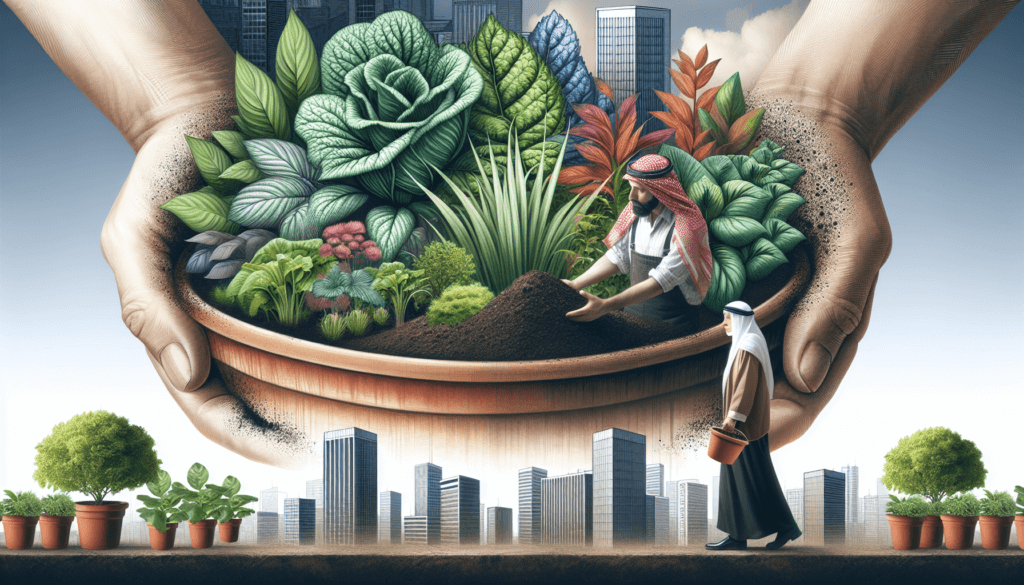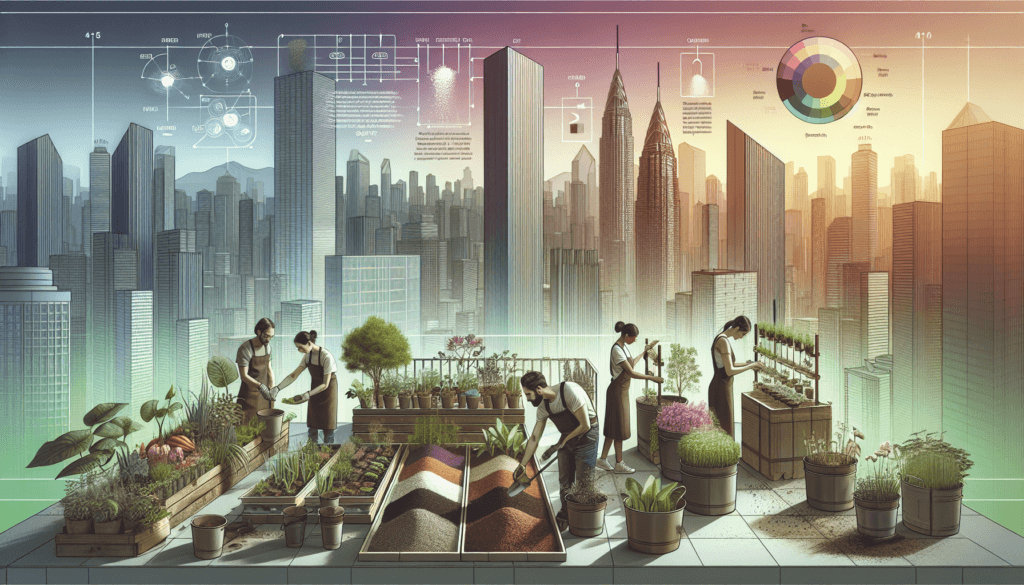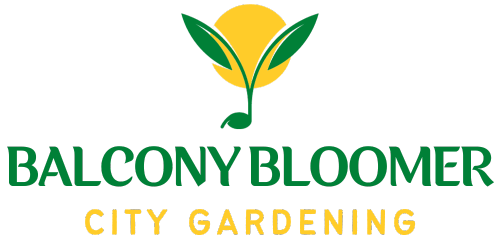So you’ve decided to try your hand at urban gardening, and you’re wondering where to start. Well, look no further than the foundation for a successful garden – the soil. Choosing the right soil is crucial for creating a thriving urban garden. This article will guide you through the process of selecting the perfect soil for your urban oasis, ensuring that your plants flourish and your gardening experience is a fruitful one.
Understanding the Importance of Soil in Urban Gardening
The role of soil in plant growth
Soil plays a crucial role in the growth and development of plants in urban gardening. It serves as the medium for plant roots to anchor themselves and take up essential nutrients and water. The composition and quality of the soil directly impact the health and productivity of the plants. Therefore, it is essential to understand the importance of soil when embarking on an urban gardening journey.
How soil affects urban gardening
In urban gardening, where space is often limited and soil conditions may not be optimal, the right soil becomes even more critical. The quality of the soil can determine the success or failure of your urban garden. Poor soil can hinder plant growth, leading to stunted plants, nutrient deficiencies, and increased susceptibility to diseases and pests. On the other hand, the right soil can provide the necessary support and nutrients for plants to thrive, resulting in vibrant foliage, bountiful harvests, and an overall healthier garden.
The benefits of using the right soil
Using the right soil is crucial for several reasons. Firstly, it ensures that plants have access to the essential nutrients they need to grow and flourish. Soil rich in organic matter and nutrients like nitrogen, phosphorus, and potassium provides a solid foundation for plants to establish strong root systems and develop robust foliage. Secondly, the right soil promotes proper drainage, preventing waterlogged conditions that can suffocate plant roots. Adequate drainage is especially crucial in urban gardening, where containers and raised beds are commonly used. Lastly, using the right soil helps maintain a balanced pH level, which is essential for nutrient availability and plant health. Overall, the benefits of using the right soil are abundant, contributing to the success and sustainability of your urban garden.
Assessing Your Urban Gardening Needs
Determining the types of plants you want to grow
Before selecting the appropriate soil for your urban garden, it is essential to determine the types of plants you plan to grow. Different plants have varying soil requirements, including pH levels, nutrient content, and drainage needs. Some plants thrive in well-draining soil, while others prefer moisture-retentive soil. Understanding the specific needs of your chosen plants will help you make informed decisions when selecting soil.
Considering the size and location of your garden
The size and location of your urban garden also play a significant role in determining the type of soil you should use. If you have limited space and are using containers or raised beds, lightweight soil with good drainage and water retention capabilities is ideal. On the other hand, if you have a larger in-ground garden, the soil composition and texture of the existing soil will influence your choice of amendments and additives.
Identifying the specific soil requirements of your plants
Once you have determined the types of plants and the size of your urban garden, it is crucial to identify the specific soil requirements of your plants. Some plants thrive in loamy soil, while others prefer sandy or clayey soil. Additionally, certain plants thrive in acidic soil, while others prefer alkaline conditions. By understanding the soil preferences of your chosen plants, you can ensure that you provide them with an environment conducive to their growth and success.

Different Types of Soil for Urban Gardening
Topsoil
Topsoil is the uppermost layer of soil and is rich in organic matter, nutrients, and beneficial microorganisms. It is often used as a base layer or amendment in urban gardening. Topsoil provides a solid foundation for plants to establish their root systems and access essential nutrients. However, it is important to note that not all topsoil is of equal quality. It is essential to source high-quality topsoil that is free from contaminants and has the right balance of organic matter and nutrients.
Potting Mix
Potting mix, also known as potting soil, is specifically formulated for container gardening. It is lightweight, well-draining, and often contains a combination of peat moss, vermiculite, perlite, and organic matter. Potting mix provides excellent water retention while allowing excess water to drain away, preventing waterlogged conditions. It also provides a loose and fertile medium for plants to thrive in containers, making it an ideal choice for urban gardening.
Compost
Compost is a valuable organic amendment for urban gardening. It is made from the decomposition of organic waste materials, such as kitchen scraps, yard waste, and manure. Compost improves the overall structure of the soil and enhances its ability to retain moisture and essential nutrients. It also promotes the growth of beneficial microorganisms that contribute to soil health and plant vitality. Adding compost to your urban garden soil can significantly improve its fertility and overall quality.
Vermiculite and Perlite
Vermiculite and perlite are lightweight, aggregate materials used in soil mixes to improve drainage and aeration. Vermiculite retains moisture, providing a consistent water supply to plant roots. Perlite, on the other hand, improves aeration and prevents soil compaction, ensuring optimal root development. Both vermiculite and perlite are commonly used in potting mixes and soil amendments for urban gardening, especially for plants that require well-drained soil.
Factors to Consider When Selecting Soil
Drainage
Proper drainage is crucial in urban gardening to prevent waterlogged conditions and root rot. The soil should allow excess water to drain away while retaining enough moisture for the plants. Consider the soil’s texture and composition, as well as any amendments or additives that can improve drainage. For plants that require well-draining soil, like cacti or succulents, adding perlite or vermiculite to the soil mix can enhance drainage capabilities.
Nutrient Content
Plants rely on essential nutrients for growth and development. When selecting soil, consider its nutrient content and whether it meets the specific needs of your chosen plants. Soil rich in organic matter and nutrients like nitrogen, phosphorus, and potassium is ideal for most plants. However, soil amendments and fertilizers may be necessary to ensure adequate nutrient availability for optimal plant health.
Water Retention
Water retention is essential in maintaining plant hydration and preventing moisture stress. The soil should have the capacity to retain moisture without becoming waterlogged. Soils with high organic matter content, such as potting mixes and compost-enriched soil, generally have good water retention abilities. Adding moisture-retentive components like peat moss to the soil mix can further enhance water retention capabilities.
pH Level
The pH level of the soil affects nutrient availability to plants. Different plants have varying pH preferences, ranging from acidic to alkaline. Testing the pH level of your soil and adjusting it accordingly can help create an optimal growing environment for your plants. Acid-loving plants, such as blueberries, thrive in acidic soil, while alkaline-loving plants, like lavender, prefer alkaline conditions. Adding soil amendments like sulfur or lime can help adjust the pH level as needed.

Testing and Amending Soil
Conducting a soil test
Before planting in your urban garden, it is advisable to conduct a soil test to assess its composition and nutrient levels accurately. A soil test can be done using a soil testing kit or by sending a sample to a laboratory for analysis. The test results will provide valuable information about the pH level, nutrient content, and other factors that may affect plant growth. By understanding the current state of your soil, you can make informed decisions about the necessary amendments and treatments.
Interpreting soil test results
Interpreting soil test results can be overwhelming, but it is essential to properly understand the information provided. Soil test reports typically include information on pH level, nutrient levels, and recommendations for amendments. The pH level informs you about the soil’s acidity or alkalinity, while nutrient levels highlight any deficiencies or imbalances. Pay attention to the recommended amendments and follow them accordingly to optimize your soil’s fertility and plant health.
Amending soil with organic matter
Organic matter is a valuable component in soil amendment. It improves soil structure, enhances nutrient retention and water holding capacity, and promotes the growth of beneficial microorganisms. Organic matter can be added to urban garden soil in the form of compost, manure, leaf mold, or other organic materials. Incorporating organic matter into the soil helps enrich it with essential nutrients and creates a conducive environment for plant growth.
Choosing the right amendments
Based on the results of your soil test and the specific needs of your plants, you may need to add additional amendments to your urban garden soil. Common amendments include lime, sulfur, bone meal, and blood meal, which help adjust pH levels and provide essential nutrients. It is important to carefully follow the recommended application rates and timing to avoid over-amending or causing imbalances in the soil.
Finding the Right Soil Supplier
Researching local suppliers
Finding the right soil supplier for your urban garden is crucial to get good quality soil that meets your specific needs. Start by researching local soil suppliers in your area. Look for suppliers specializing in garden soil, potting mixes, or organic compost. Check their websites or call to inquire about their products and processes. Consider their proximity to your garden, as well as the availability of bulk or bagged options that suit your needs.
Considering cost and quality
Cost and quality are important factors to consider when selecting a soil supplier. While it may be tempting to opt for the cheapest option, it is essential to prioritize quality. Low-quality soil may contain contaminants, lack essential nutrients, or have poor drainage capabilities, which can negatively impact your urban garden. Balance cost and quality by comparing prices and researching customer reviews to ensure you are getting the best value for your investment.
Reading customer reviews
Reading customer reviews can provide valuable insights into the reputation and quality of a soil supplier. Look for reviews from fellow urban gardeners or gardening enthusiasts who have previously used the supplier’s products. Pay attention to feedback on the soil’s quality, nutrient content, and overall satisfaction with the supplier’s service. Positive reviews can give you confidence in your choice, while negative reviews may indicate potential issues to consider.
Seeking recommendations
If you are unsure about which soil supplier to choose, seeking recommendations from experienced gardeners or local gardening communities can be helpful. Reach out to gardening groups or forums in your area to ask for recommendations or advice on reputable soil suppliers. Experienced gardeners can provide insights and personal experiences that may guide you in finding the right supplier for your urban gardening needs.

Mixing Your Own Soil Blend
Understanding soil components
When mixing your own soil blend for urban gardening, it is important to understand the different components and their functions. Soil typically consists of mineral particles, organic matter, water, and air. The mineral particles provide structure and stability, while organic matter contributes to nutrient availability and water retention. Balancing these components is crucial to create a well-draining, fertile soil mix for your urban garden.
Proportions for different plants
Different plants have varying soil requirements, so it is essential to adjust the proportions of soil components accordingly. For example, plants that prefer well-draining soil may need more mineral particles, such as sand or perlite, to improve drainage. Plants that prefer moisture-retentive soil may benefit from higher organic matter content, such as compost or peat moss, to enhance water retention capabilities. Research the specific soil preferences of your chosen plants to determine the appropriate proportions for your soil blend.
Creating a balanced soil mix
To create a balanced soil mix, combine the necessary components in the right proportions. This may include mineral particles like sand, perlite, or vermiculite for improved drainage, organic matter like compost or peat moss for nutrient availability and water retention, and any necessary amendments based on your soil test results. Thoroughly mix the components to ensure they are evenly distributed, creating a homogenous soil blend ready for planting.
Tips for soil mixing
When mixing your own soil blend, there are a few tips to keep in mind. Firstly, use clean containers or a clean area to avoid contamination from foreign particles or pathogens. Secondly, measure the components accurately to achieve the desired proportions and consistency. Lastly, mix the soil thoroughly to distribute the components evenly. Consider using a large container, a tarp, or a wheelbarrow for easier mixing. If necessary, add water gradually during the mixing process to achieve the desired moisture level.
Raised Beds vs. In-Ground Gardening
Choosing the right gardening method
When planning your urban garden, one important decision to make is whether to use raised beds or opt for in-ground gardening. Both methods have their own advantages and considerations, so it is important to choose the one that suits your needs and preferences. Consider factors such as available space, mobility, soil quality, and plant selection when deciding which method to pursue.
Benefits of raised beds
Raised beds offer several benefits for urban gardening. Firstly, they provide better soil control and drainage, as you can customize the soil blend and amendments in the raised bed. This is especially advantageous in areas with poor soil quality or limited space. Raised beds also provide better accessibility, making gardening tasks easier, especially for individuals with limited mobility. Additionally, raised beds can be aesthetically pleasing and can add structure and definition to your urban garden.
Benefits of in-ground gardening
In-ground gardening, on the other hand, offers its own set of advantages. In-ground gardens utilize the existing soil, potentially reducing the need for extensive soil amendments. This method may be more suitable for larger urban gardens or areas with naturally fertile soil. In-ground gardening also allows for better root penetration and exploration into the surrounding soil, potentially resulting in larger and more robust plants. Furthermore, in-ground gardens may require less maintenance and initial setup compared to raised beds.
Soil considerations for each method
When choosing between raised beds and in-ground gardening, it is important to consider the soil requirements for each method. Raised beds require filling with soil, so the quality and composition of the soil blend are crucial. In-ground gardening relies on the existing soil, so understanding its composition and nutrient content is important. In both cases, conducting a soil test can provide valuable insights and guide your decisions regarding soil amendments and treatments.

Maintaining and Caring for Urban Garden Soil
Regular watering and moisture management
Proper watering and moisture management are essential in maintaining healthy urban garden soil. Water regularly, ensuring that the soil is consistently moist but not excessively wet or waterlogged. Avoid overwatering, as it can lead to root rot and other moisture-related issues. Monitor the moisture levels by checking the soil’s moisture content regularly, adjusting your watering frequency and volume as needed to maintain optimal moisture levels.
Adding organic compost regularly
Regularly adding organic compost to your urban garden soil is an effective way to replenish nutrients and maintain soil fertility. Compost adds organic matter, improves soil structure, and supports the growth of beneficial microorganisms. Apply compost as a top dressing or incorporate it into the soil during the growing season. This practice helps replenish nutrients that plants extract from the soil and promotes overall soil health and vitality.
Avoiding chemical pesticides and fertilizers
In urban gardening, it is advisable to avoid chemical pesticides and fertilizers whenever possible. These synthetic products can adversely affect soil health, beneficial microorganisms, and the overall ecosystem. Instead, opt for organic pest control methods and organic fertilizers. Organic pest control methods include using beneficial insects, companion planting, and natural repellents. Organic fertilizers, such as compost or organic matter-based fertilizers, provide slow-release nutrients without harming the soil or surrounding environment.
Crop rotation and soil health
Implementing crop rotation is an effective strategy for maintaining soil health and preventing nutrient deficiencies or imbalances. Rotate the types of plants you grow in different areas of your urban garden each season to ensure that specific plant families are not continuously depleting the soil of the same nutrients. Crop rotation also helps break the life cycles of pests and diseases that may affect specific plant families. By diversifying your plant selection and implementing crop rotation, you can support long-term soil health and minimize the risk of nutrient deficiencies.
Conclusion
Understanding the importance of soil in urban gardening is crucial for creating a successful and productive garden. Soil provides the foundation for plant growth, affecting nutrient availability, water retention, and overall plant health. By assessing your urban gardening needs, considering the types of plants you want to grow, and understanding the specific soil requirements, you can choose the right soil for your garden. Whether you opt for topsoil, potting mix, compost, or a blend of these options, selecting soil with the appropriate drainage, nutrient content, water retention, and pH level is essential. Conducting soil tests, amending with organic matter, and finding the right soil supplier are vital steps in creating a healthy and fertile soil environment for your urban garden. Whether you choose raised beds or in-ground gardening, maintaining soil health through regular watering, adding organic compost, avoiding chemical pesticides and fertilizers, and implementing crop rotation will contribute to the long-term success of your urban garden. With proper soil care and attention, your urban garden will thrive, providing you with abundant harvests and a green oasis in the heart of the city.



